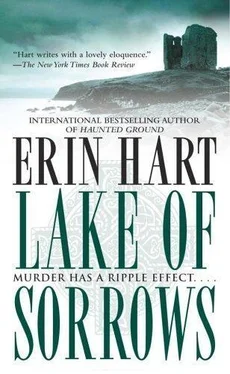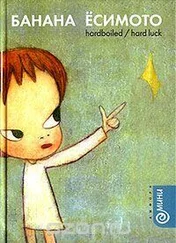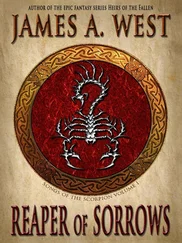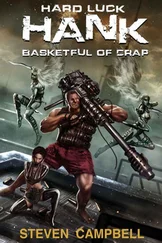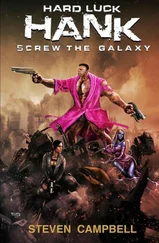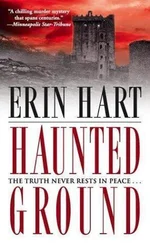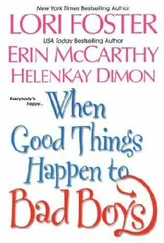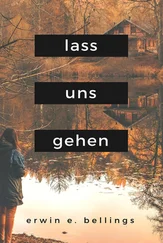And of course Gabriel had been dead on, as usual. Nora was all the things the old man had said, and more. The idea of sharing his life completely with anyone had never before circled the edges of Cormac’s consciousness. Now it hovered, light and capricious as a butterfly. In many ways, his daily life had not appreciably altered since they’d been together. He still rose each day at seven, and cycled to the university for morning classes three days a week. Tuesdays, Thursdays, and Saturdays, he’d go down to the boat club and take his scull out for an early morning row down the Liffey. When the water was calm, it was the nearest thing to flying he’d ever experienced. He loved the dank smell of the riverbank, the dripping green moss and algae on the bridge pilings, and the image that always filled his mind as he rowed, of the river water merging with the seawater, brown and green. These things were all part of the life he’d made, layer by layer, over many years. And Nora was the mercurial salmon, that bright flash of silver he glimpsed only occasionally, swimming against the current in that steady stream. What would happen if he caught her?
He thought back to the last time they’d made love. She’d begun to weep, quietly but uncontrollably, and when he’d asked whether it was something he’d said or done that had upset her, she had only shaken her head. Her wordless sorrow had moved him to the point of tears as well, though he hadn’t shed them in years—not since his mother died, in fact. He hadn’t even been able to cry for the loss of Gabriel, his truest father in any real sense of that word. But he had felt so helpless, so completely defenseless against Nora’s tears. He’d wanted to gather her up like a small child, to tell her everything was all right, or would be all right, but he couldn’t do it. Because it wasn’t all right, and never would be, with that cleft in the world where Triona used to be, where Nora’s own life used to be. How often had she replayed that last conversation with her murdered sister, each time changing what she had said, so that circumstances would alter, the future would shift, and horror would recede into the realm of nightmare?
He wondered what she’d done to help build the case against her brother-in-law. He’d once found her poring over a file when he arrived at her flat, but she’d tucked it under a pile of papers, without letting him see what it was. Later, shifting the papers from the table, he’d scanned the heading: HALLETT, Catriona. Autopsy report. He sometimes tried to imagine how a family could be transformed by such a tragedy. He had often heard Nora on the telephone with one or both of her parents; it was easy to perceive her affection for them, and yet he detected a distance, a strain in the relationship—something in the tone of her voice, the duration of the pauses in the conversation. He imagined growing up in a close family, something that was as foreign to him as the place she was from. But when a thing is so horrifically broken, never to be put back together again, there must be all sorts of jagged edges.
Giving up on writing for the moment, Cormac put together his flute, hoping the distraction of playing a tune would get him thinking more about his article than about Nora. He felt the cool ebony against the underside of his lower lip, this once-living thing from the tropics now resident in a nearly treeless rainforest a world away. He felt the music pass through him, from somewhere unknown, out between his pursed lips and into his fingers, through the flute and into the air, the atmosphere he breathed and took into his lungs to make more music. So much of existence was like that: endlessly, thoughtlessly self-perpetuating cycles. His courtship of Nora—and he did think of it in that formal way—was part of another cycle of human life. He wondered where it would end, whether they would ever find enough common ground, but he remained hopeful. He had no choice.
He took another breath and began to play “The Dear Irish Boy,” the tune that had become, for him, the theme of the cailin rua, the red-haired girl who had brought them together last summer. The cailin rua had suffered a needless and cruel death, but her son had survived, and three hundred and fifty years later, through another tragedy, her descendants had learned her story. He played through the tune’s B part, feeling the cascade of high, keening notes pull like brambles at his soul. Slowly the theme resolved itself and flowed once more like a stream, with rippling, dark currents only occasionally audible under its surface.
He set down the flute and tried to go back to writing. The article he was wrestling with was a new look at Bronze Age and Iron Age gold from possible ritual deposits—and ritual deposits were always only possible because, as much as one wanted to believe in it, ritual intent was almost impossible to prove through archaeology alone. That whole period was fraught with riddles and mysteries to which they had only fragmentary answers. Why was it that the heaviest deposits of native gold were found in the rivers of Wicklow and Tyrone, and yet the most spectacular of the Bronze Age gold objects had been found all the way across the island in Clare? Why was there no direct evidence of beekeeping in the Iron Age, despite evidence that beeswax had most certainly been used for cire perdue metal casting? Why were gold objects so uncommon among grave goods—were they melted down, or passed on to the next wearer as a mark of office?
He studied the map showing the distribution of Bronze and Iron Age gold objects across Ireland. How many dots were missing because someone had stumbled on the gold and kept it, buried it again, or melted it down and sold it, and lived on the proceeds in comfort for the rest of his natural life? There were also hundreds of unknown and never-to-be-told stories of gold-fueled strife—thefts and confiscations and no doubt murders as well—all over bright yellow metal. He wondered how the ancients had perceived it, who worked in rusting iron and green corroding bronze. To cultures steeped in the ever-corrupting natural world, it must have seemed the only substance that did not decay, the sacred metal of the sun, of immortality.
A noise startled him—only a bird nesting in the eaves, but he realized how anxious he was, waiting for Nora’s arrival. He didn’t want a repeat of what had happened last night. Shortly after he’d arrived, he’d heard a rap on the door. He had answered it automatically, thinking the caller might be Brona Scully come back to see if he’d had any trouble with the boiler. He’d been caught off guard to find Ursula Downes on the doorstep. He thought back to the picture she’d presented. Ursula was slight and fair, and the hair cut tight around her ears gave her a rather self-consciously gamine look. The gold eyebrow ring was an addition since he’d last seen her, but somehow it was hardly surprising. It had been some time.
“I was just driving past, and saw the car,” she said. “Thought it might be Evelyn, but I’m happy to find that it’s you. Back on Loughnabrone Bog again. You’ll never believe it—I’m over at the old digs. The house has been fixed up, but once in a while I’ll open the door and expect to see you or one of the others standing in the queue for the toilet.”
“It was all about making the most of a rare opportunity, as I recall.”
They’d both spent several summers working out here with Gabriel nearly twenty years earlier, and seeing Ursula again brought it all back: the primitive student lodging, the aroma of wet wool jumpers drying by the fire, strong tea, cold rooms, warm beds. The very air in those days had seemed fraught with all kinds of physical hunger. From her expression, he had no doubt that Ursula remembered it too.
“Listen, Cormac, I was very sorry to hear about Gabriel,” she’d said, lowering her voice. “It must have been a complete shock. I’m sure we all thought he’d go on forever. I meant to phone you or Evelyn, but I’m no good at that sort of thing.” She had seemed alone at that moment, wary and vulnerable somehow, still standing outside on the doorstep.
Читать дальше
